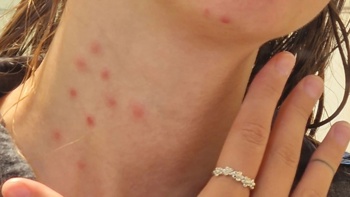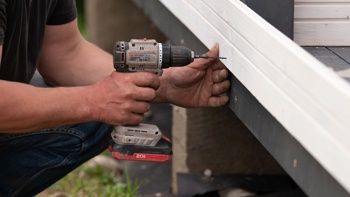
Warning- Story contains distressing subject matter
The Government has paid out almost a million dollars in lump compensation for people permanently injured by surgical mesh, which has left some living on morphine, becoming suicidal from “razor blade” pain, and having their vagina sewn shut.
Newstalk ZB can reveal ACC has spent $878,245 on 55 lump sum claims across the last five years, as officials investigate halting the use of surgical mesh for a common birth injury.
To be eligible for the payment, patients need to have a whole-person impairment rating of at least 10 per cent, which is assessed based on their physical and mental function.
The numbers have come as a shock to former nurse Sally Walker, who personally faced the “gruelling” compensation process after mesh rotted inside of her.
‘It’s insulting, to be honest.... that’s a very low number of accepted [lump compensation claims] and the financial amount is really a kick in the teeth”, she told ZB.
Last year, Walker launched a petition to follow the lead of the United Kingdom and pause the use of surgical mesh to treat stress urinary incontinence (SUI).
She said those harmed by mesh have faced a tough battle to be heard and believed.
“Most of us [women] are masters of disguise, you don’t look like you’re in pain, [so] then it’s, well, what are you on about, you’re functioning, you’re still going out?”
“It is a form of gaslighting”, she said.
A Herald investigation has previously detailed complaints about mesh use that have been lodged with the Health and Disability Commission (HDC), with many women claiming the medical device was implanted without their informed consent.
It has also been discovered that surgeons are failing to meet minimum standards for potentially risky mesh operations.
The Ministry of Health is looking into the potential scope of a pause, but says complexities remain.
“There are certain risks associated with pausing the use of surgical mesh to treat SUI, including removing access to a procedure, that may be the only appropriate, treatment option for some women.”, a spokesperson said.
“There is also the potential that further restrictions being placed on surgeons’ practices (alongside credentialling) may further reduce access to treatment for women.”
Documents released under the Official Information Act show, since January 2017, ACC granted fewer than four lump sum payments between $50,000 and $100,000.
The rest of the 55 accepted lump compensation claims fell between $1,000 and $50,000.
These payments were on top of any other entitlements a client may receive from ACC (such as weekly compensation and treatment costs) and are not taxed.
ACC figures released to Newstalk ZB show a total of $32,305,868 has been spent on accepted surgical mesh injuries, between July 2017 and June 2022, covering lump sums, compensation, rehabilitation and treatment payments.
Associate Health Minister Willow Jean-Prime, who holds responsibility for women’s health, said mesh is no longer used to treat pelvic organ prolapse.
“I am confident we’re taking this issue seriously... in some cases, this is still the best, and only, option available to people for the condition they have”, she said.
“With any medical procedure, there is always a risk.”
But Green Party ACC spokesperson Jan Logie believes it’s a “no-brainer” to suspend the procedure for SUI.
‘This is legal with the knowledge that there is a real percentage of women whose lives are irreparably damaged, and the response is... that’s acceptable”, she said.
“It feels heartless.”
A surgical mesh roundtable, chaired by Chief Medical Officer Dr Joe Bourne, has been tasked with actioning a restorative justice process from 2019, though concerns have been raised about slow progress.
In April this year, Te Whatu Ora also established the New Zealand Female Pelvic Mesh Service for those harmed by mesh, with more than 20 women referred so far.
ACC deputy chief executive for service delivery, Amanda Malu, said a client becomes eligible for permanent compensation assessment once an injury has “stabilised”, which is generally after two years.
“It considers the impact of the injury on the client’s life in the following areas: activities of daily living; social functioning; concentration, persistence, and pace; and adaptation/decompensation”, she said.
Aaron Dahmen is Newstalk ZB’s Chief Political Reporter, based in Wellington’s Parliamentary Press Gallery. He joined NZME in 2019 and has been nominated for New Zealand Radio Awards and Voyager New Zealand Media Awards.
Take your Radio, Podcasts and Music with you









